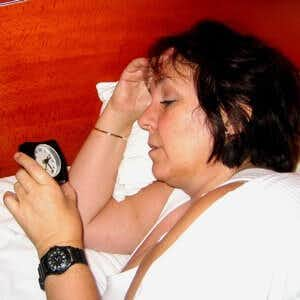
Getting a good night’s sleep is one of the pillars of good health, but for many people it is a real struggle. They toss and turn, worrying that they won’t be able to fall asleep at all. It is no wonder over-the-counter (OTC) sleeping pills containing diphenhydramine are so popular.
Are OTC Sleeping Pills Safe Enough for Regular Use?
Q. I started taking OTC sleep aids when I was working a late shift. Even when I got back to a more normal work pattern, I had to rely on diphenhydramine to fall asleep.
Sometimes I take two or three pills to stay asleep but then I wake up feeling groggy. Are these OTC pills bad for me?
How Does Diphenhydramine Affect the Brain?
A. Diphenhydramine (DPH) is a sedating antihistamine. It is the ingredient in the allergy medicine Benadryl. DPH is also the “PM” component of pain relievers like Advil PM, Aleve PM, Excedrin PM and Tylenol PM.
Some people complain of “brain fog” the morning after taking diphenhydramine. That would be especially likely if you double or triple the dose.
The American Academy of Sleep Medicine recently issued guidelines about DPH (Sateia et al, Journal of Clinical Sleep Medicine, Feb 15, 2017):
“We suggest that clinicians not use diphenhydramine as a treatment for sleep onset and sleep maintenance insomnia (versus no treatment) in adults.”
DPH Is an Anticholinergic Drug:
Our principal concern with DPH is that it is highly anticholinergic. (We wrote about why that is a problem here.) As a result, we are concerned that regular use of diphenhydramine over the long term might contribute to confusion or memory loss, not just morning-after brain fog (Risacher et al, JAMA Neurology, June 1, 2016). It would be better not to rely on OTC sleeping pills with DPH, but you will need to find other ways to get the sleep you need.
You will learn about other problems associated with DPH plus nondrug strategies for combatting insomnia in our Guide to Getting a Good Night’s Sleep. In addition to advice on herbs and supplements that can be helpful, this online resource lists a number of medications that might be inadvertently keeping you awake.

